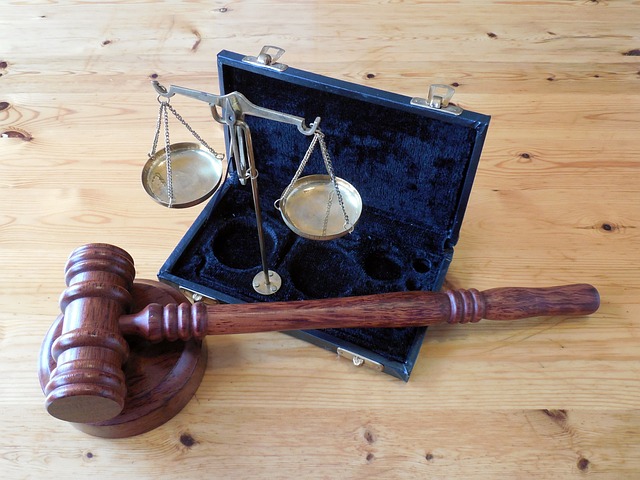Criminal defense attorneys are vital advocates in the justice system, defending clients' rights and ensuring fair trials. They employ plea bargaining, a strategy to reduce caseloads by negotiating charges down for guilty pleas, particularly effective in managing complex white-collar crimes. While its effectiveness is debated, with critics arguing for more stringent sentences, proponents highlight its role in streamlining court proceedings and conserving judicial resources. Skilled attorneys use plea bargaining to secure favorable outcomes for clients and ease the burden on overworked courts, ensuring efficiency and fairness in the criminal justice system.
“Unraveling the intricacies of criminal defense, this article delves into the pivotal role played by attorneys in our legal system. From understanding their mandate to exploring strategies, we examine how these professionals navigate complex cases. A significant aspect under scrutiny is plea bargaining, its impact on caseloads, and its effectiveness as a tool for both defendants and prosecutors.
Through case studies, we present success stories, highlighting the immense value of skilled criminal defense attorneys in ensuring justice.”
- Understanding Criminal Defense Attorneys and Their Role
- The Impact of Plea Bargaining on the Legal System
- Strategies Used by Effective Criminal Defense Attorneys
- Benefits of Plea Bargaining for Defendants and Prosecutors
- Case Studies: Success Stories in Criminal Defense and Plea Bargaining
Understanding Criminal Defense Attorneys and Their Role

Criminal Defense Attorneys play a pivotal role in our justice system, acting as advocates for individuals accused of criminal offenses. Their primary duty is to ensure that their clients’ rights are protected and that they receive a fair trial. These attorneys are instrumental in navigating complex legal landscapes, often employing strategies like plea bargaining to achieve the best possible outcome for their clients. Plea bargaining, an effective method to reduce caseloads, allows defendants to negotiate a deal with prosecutors, pleading guilty to a lesser charge or receiving a reduced sentence in exchange for dropping more severe accusations.
Beyond their role in plea negotiations, Criminal Defense Attorneys also provide crucial support for clients facing white-collar crimes, which are often associated with financial or professional misconduct. Their expertise helps defend against charges in various sectors, including corporate and government settings, across the country. Moreover, these attorneys’ work extends into the philanthropic and political communities, where their skills are utilized to ensure transparency and fairness in legal matters that impact these influential groups.
The Impact of Plea Bargaining on the Legal System

Plea bargaining is a critical aspect of the criminal justice system, offering both advantages and complexities. This process involves defendants pleading guilty to a lesser charge or accepting a negotiated sentence in exchange for avoiding trial. While it aims to streamline court proceedings and reduce caseloads, its effectiveness in achieving these goals is a subject of debate. The legal system relies on plea bargaining as a tool to manage the vast number of cases, ensuring efficient case resolution and potentially saving judicial resources.
Across the country, the impact of plea bargaining varies, but it remains a prevalent strategy. In particular, for white-collar and economic crimes, this practice is often sought after due to the complexity of such cases. However, critics argue that while it may reduce caseloads, it could also lead to defendants receiving lenient sentences, potentially overlooking the severity of their actions. Balancing the need for swift justice and the goal of reducing backlogs is a delicate task, one that requires careful consideration of both the effectiveness of plea bargaining in workload management and the pursuit of extraordinary results in holding criminals accountable.
Strategies Used by Effective Criminal Defense Attorneys

Effective criminal defense attorneys employ a range of strategies to ensure their clients receive the best possible outcome. One key approach is the strategic use of plea bargaining, which involves negotiating with prosecutors to reduce charges or sentencing in exchange for a guilty plea. This method significantly reduces caseloads for both legal professionals and overburdened courts, allowing them to focus on high-stakes cases that require extensive trial expertise.
By offering a plea bargain, defense attorneys can secure more favorable outcomes for their clients while also contributing to the efficiency of the justice system. This strategy is particularly crucial in managing complex cases, where lengthy trials could be costly and time-consuming. For his clients, this means potential reductions in charges or sentences, as well as an avoidance of the stress and uncertainty of a trial.
Benefits of Plea Bargaining for Defendants and Prosecutors

Plea bargaining is a critical strategy that offers several advantages for both defendants and prosecutors, making it an essential aspect of criminal defense. For defendants facing high-stakes cases, this process provides an opportunity to mitigate potential penalties. By entering into a plea agreement, individuals can often secure reduced sentences or even avoid trial altogether, leading to quicker resolutions and less public scrutiny. This is particularly beneficial for those who wish to move on with their lives after addressing their legal issues.
For prosecutors, the effectiveness of plea bargaining in reducing caseloads is well-documented. It allows for a more efficient use of judicial resources by streamlining the process. By negotiating pleas, prosecutors can achieve extraordinary results, ensuring that guilty parties are held accountable while also freeing up time and resources to focus on complex cases. This strategy fosters a balanced approach to criminal justice, allowing for both swift resolutions and fair consequences.
Case Studies: Success Stories in Criminal Defense and Plea Bargaining

The effectiveness of plea bargaining in reducing caseloads has been a topic of interest for many legal professionals and policymakers. Criminal defense attorneys play a pivotal role in negotiating these deals, often securing winning challenging defense verdicts for their clients. Through skilled pleading and strategic negotiations, they can help alleviate the burden on the justice system, ensuring that resources are allocated efficiently across the country.
White-collar defense, a specialized area within criminal law, exemplifies this strategy’s potential. Complex financial crimes require intricate legal knowledge and innovative approaches. Successful defense attorneys in this field frequently achieve positive outcomes, including reduced charges or dismissals, through plea bargaining. This practice not only benefits individual clients but also contributes to a more manageable caseload for the courts, allowing them to focus on other critical matters.
Criminal defense attorneys play a pivotal role in our justice system, often serving as guardians of due process and individual rights. By employing strategic techniques like effective cross-examination and negotiating plea bargains, they contribute to a more efficient legal landscape. Plea bargaining, while sometimes criticized, remains an essential tool for managing caseloads and achieving just resolutions. As evidenced by successful case studies, when balanced with strong defense representation, plea bargaining can benefit both defendants and prosecutors alike, ultimately leading to a fairer and less overwhelmed justice system.






